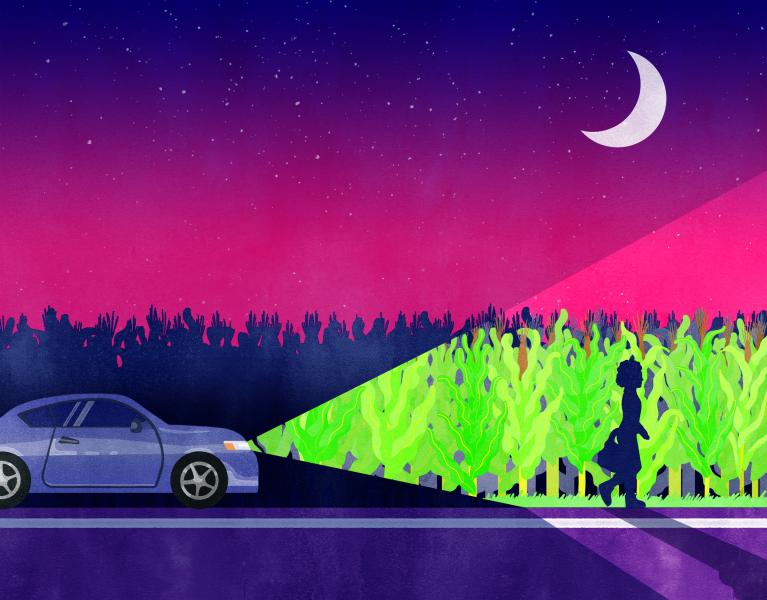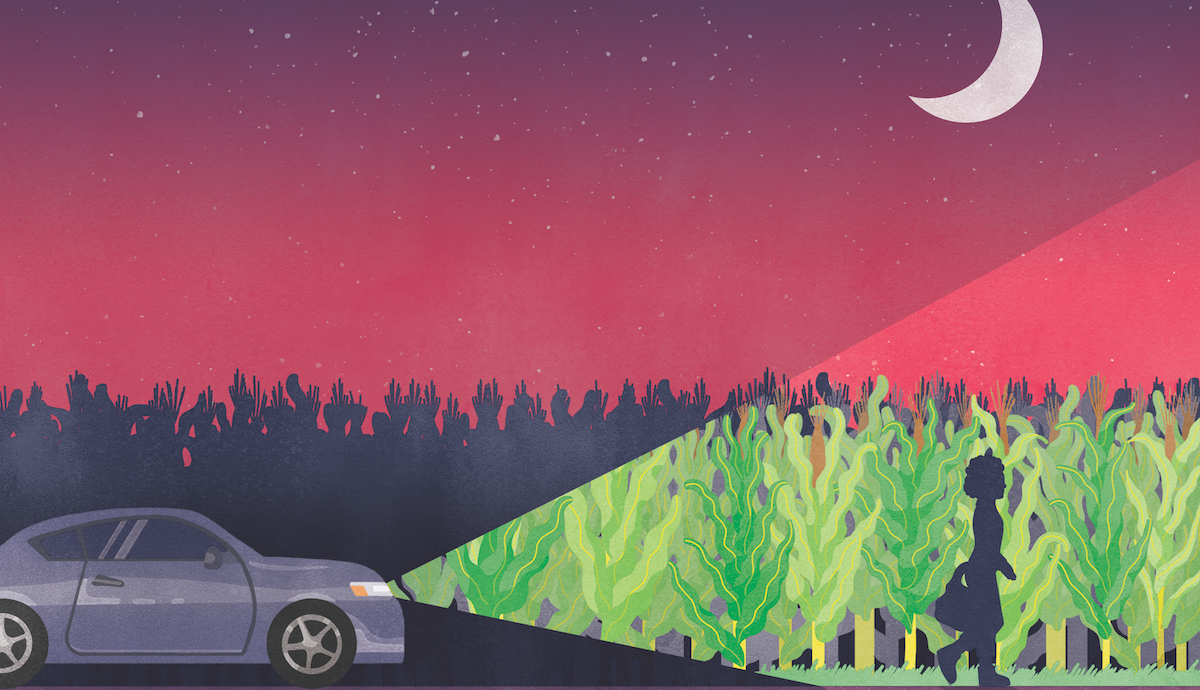On Writing "Rock Springs, Iowa"
We'd been driving back roads, cruising for home, flipping through FM stations, searching for a pop station at the request of my children, when I heard Ryan Adams crooning to a cover of “Bad Blood” by Taylor Swift. It was moody, like most of his songs, but good. It was a cover that provided a truly unique twist on the original, which up to that point I had heard more times than I care to admit thanks to my sister who had gifted the album 1989 to my eldest child.
“This isn't bad,” I said to no one in particular.
“He covered the entire album,” my oldest daughter said.
“Maybe we should pick one up,” I said.
“Maybe,” she said.
Her lack of enthusiasm pointed to her interest in the original album more so than the cover, which I understood, given Ryan Adams's obscurity to most teenagers. Plus, I like Adams's work, which automatically disqualifies him in the eyes of my children. Go figure. I should mention that I'm not a superfan. I understand: the guy's a total dick on stage (most of the time), due to his raging insecurities, and I've seen him in concert on a few occasions and I've never heard someone so sarcastic and condescending to the crowd. I'd give you an example, but there were too many to count, and I've since forgotten any one specific, but most people who know Adams's work also know his inability to connect with an audience in any personal way. This acknowledgement doesn't diminish his brilliance.
 I didn't purchase the cover album, but it did spark something by way of intrigue. To this effect: what if a writer tried to “cover” an entire collection of stories? (Note: at the time, I was unaware of McSweeney’s cover stories issue). I got so excited by the idea that I went home and reread the first story in Richard Ford's collection, Rock Springs, which is a collection that—cover to cover—I love. And, like Adams, I can ignore Ford's perceived dickishness (though I've also heard he's quite charming).
I didn't purchase the cover album, but it did spark something by way of intrigue. To this effect: what if a writer tried to “cover” an entire collection of stories? (Note: at the time, I was unaware of McSweeney’s cover stories issue). I got so excited by the idea that I went home and reread the first story in Richard Ford's collection, Rock Springs, which is a collection that—cover to cover—I love. And, like Adams, I can ignore Ford's perceived dickishness (though I've also heard he's quite charming).
After rereading the first three stories in Rock Springs, I wrote “covers” to each, though even as I write this blog post I'm not sure if “cover” is the correct term. Maybe it's more of an adaptation. Or perhaps I was simply using the story's scaffolding to build something similar. I don't know. What I do know is that it was a satisfying exercise, and my intent was to populate Ford's stories with women narrators (his are predominately male) and people of color (his are majority Caucasian), and lastly, I wanted to set the stories in Iowa, as opposed to Montana or some other Rocky Mountain state. The result of this attempt was “Rock Springs, Iowa” which NAR was so gracious to publish.
I'm not sure if I'll “cover” the entire collection (three seemed my limit), but I enjoyed rereading Ford's collection with the sole purpose of what I've just mentioned above, which is perhaps a different kind of reading than if I were to simply read it again for pleasure or a kind of general or literary review. The act of “covering” felt at once affectionate (imitation is the sincerest form of flattery, so the saying goes) and invasive, whereas a review might provide a kind of critical affection. I didn't feel critical here. I felt as if I were inviting myself into these stories in ways counterintuitive to most writers who engage in close-reading. Instead of learning “how he did that” I was more interested in “how can I do that?” (Or maybe all writers are wondering this, I'm not sure). The difference of course is in execution. I made an attempt. Note, reader, I didn't say “successfully” or “unsuccessfully.” Only that I attempted.
Let me note too, that I had something I wanted to explore here, though I don't know if it's something I'll try again. What I attempted was this: a person of color adopting what has been for so long a mantra from some white people who claim to “not see color.” I've heard it in both formal and informal settings and I wanted to see if I could render the same notion—“not seeing color”—as “real” to this character, Kesha, an African-American character, as to any single white person in America who might claim the same. I'm not sure if this reassignment worked or not. The exercise, regardless, proved a rewarding experience.
And yet, there are already things about the story I'd change. Perhaps I shouldn't admit this, but I've already rewritten the ending in a way that points to something more for Kesha’s future, a way to show the reader that she did in fact make it out okay, and that she found herself meaningful work upon arriving in St. Louis. Also, in the rewrite, there's more direct/specific questioning of her own stance, which I find true of anyone as self-aware as Kesha.
Which might mean that my original attempt wasn't as convincing as I wanted it to be. Or maybe it simply means that I wanted something more for my narrator that wasn't explicitly stated in the original publication. And who knows, I may edit and change it again depending on how these characters and their lives continue to take shape and evolve.
Recommended
Nor’easter
Post-Op Appointment With My Father
Cedar Valley Youth Poet Laureate | Fall 2024 Workshop






